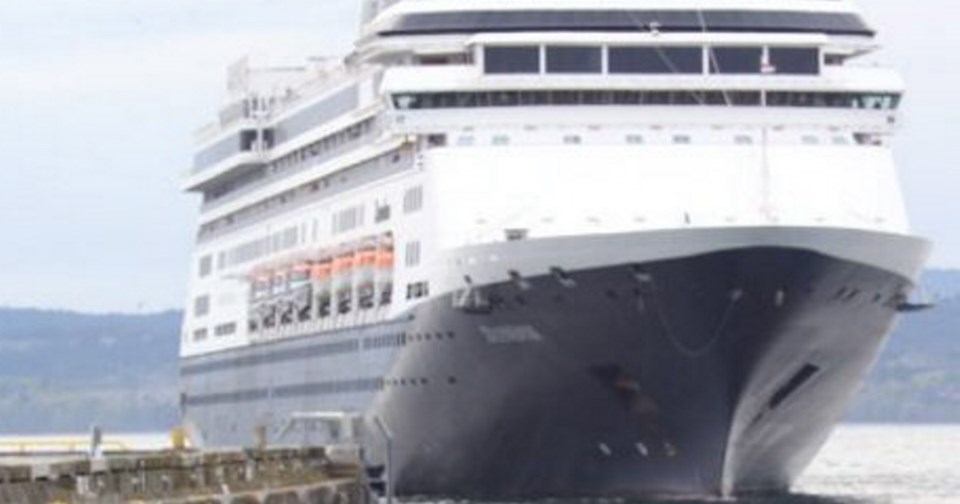Tourism Victoria is taking a measured approach to a lobbying push by several U.S. states to change an American law that is largely responsible for cruise ships stopping in Victoria.
Alaska, Hawaii, Puerto Rico and Guam are pressuring the U.S. government for relief from the Jones Act, brought in about a century ago to protect that country’s shipping industry. The legislation benefits Victoria’s cruise industry because it requires cruise ships carrying passengers to and from Alaska to make a stop in Canada before ending the trip in another U.S. port.
“I’m not particularly concerned about the Jones Act right now,” Tourism Victoria president Paul Nursey said Friday.
The issue is raised every four or five years, he said. “This comes up regularly and it looks to be very, very early days.”
Even so, Tourism Victoria will watch to see where this latest effort goes.
Altering the Jones Act would bring in another issue called cabotage, a term used to describe movement of goods or passengers within a country and covers rail, aviation and shipping, he said. Changes to cabotage would be complicated and involve U.S. federal rules and international treaties.
Nursey would not speculate on the impact of any possible changes to the Jones Act, but said that Victoria is “becoming a more highly desirable destination for cruise passengers anyway so the best thing we can do is make sure that we are putting together a good offering.”
This year, 210 cruise ship visits are expected at Ogden Point. They will have 454,000 passengers on board.
The first ship scheduled to pull in to Victoria this year is the Zaandam. It is slated to arrive May 1 at 2 p.m. and leave shortly before midnight.
The Jones Act states that only ships made in the U.S. and flying the country’s flag can deliver goods between U.S. ports.
That means that a cargo ship filled with goods from China can only make one stop in the U.S. at a time. It can’t stop in Hawaii to exchange goods before heading to Los Angeles.
Hawaii state Sen. Sam Slom said the law punishes the people of Alaska, Puerto Rico, Guam and Hawaii with high costs of living. He belongs to a bipartisan group of Hawaii lawmakers pushing Congress to reconsider the Jones Act or to consider a waiver for noncontiguous states and territories.
Alaska, similar to Hawaii, brings in most of its goods by ship or airplane. Most of Alaska’s goods move along the coast, and freight rates would be drastically reduced if the state could use foreign ships, said Alaska state Sen. Fred Dyson.
— With a file by The Associated Press



